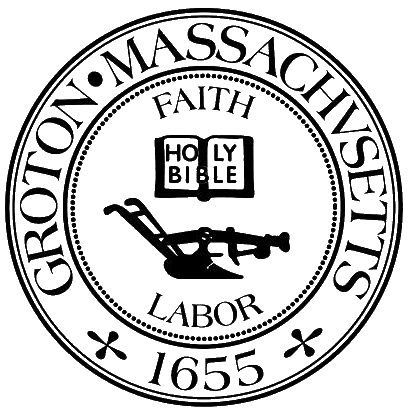Updated October 26, 2020
Stormwater management costs have been escalating for Massachusetts municipalities due to new regulations and aging drainage systems. The Earth Removal and Stormwater Advisory Committee compared stormwater funding alternatives across the state and proposed creating an Enterprise Fund with a stormwater fee, with input from town departments, town committees, and the public. At the June 13, 2020 Annual Town Meeting, voters approved the creation of the Stormwater Utility Enterprise Fund – an accounting mechanism to ensure revenue is dedicated solely to
cover stormwater management costs. The October 3, 2020 Town Meeting voted to approve the budget for the Stormwater Utility.
What is stormwater?
Stormwater is the water that runs off the land surface when it rains or snow melts. It enters the Town’s drainage system and flows directly to surface waters such as ponds, lakes, rivers, streams, and wetlands. The runoff is usually not treated and can become polluted. Stormwater runoff is also the greatest contributor to localized flooding.
What is polluted stormwater runoff?
Developed areas such as parking lots, buildings, roadways and other hardened “impervious surfaces” exist throughout Town. When it rains, water runs off these impervious surfaces and
picks up pet waste, oil, sand, fertilizers, trash, and other pollutants. The water then flows into gutters and storm drains which discharge into our waterways or cause flooding. When these pollutants enter water bodies, they can contaminate drinking water supplies, hinder recreation activities, and harm aquatic and other wildlife habitats. In addition to washing pollutants into our surface waters, improperly managed stormwater runoff can result in soil erosion and flooding. The Nashua River and James Brook in particular are impaired due to bacteria and excess phosphorus, largely because of stormwater runoff.
What is stormwater infrastructure?
Stormwater runoff is collected through streets and curbing, and typically captured by catch basins, manholes, drainage pipes, and eventually to outfalls or discharge points. These systems discharge into local waterways, which are themselves a critical part of Groton’s stormwater system.
Why did the Town establish a Stormwater Enterprise Fund?
Under the provisions of the Clean Water Act, the United States Environmental Protection Agency (EPA) requires the Town to develop a stormwater management program that reduces the discharge of pollutants to our stormwater drainage system and waterways. The Town is required to be in full compliance with the program specified in our National Pollutant Discharge
Elimination System (NPDES) Phase II permit. The permit’s goal is to reduce the pollutants to the maximum extent practical to protect water quality.
A Stormwater Utility Enterprise Fund provides a dedicated and adequate source of funding for the costs of managing our stormwater (drainage) system as required by the EPA. The current level of funding is not sufficient to meet the minimum permit requirements and to keep up with needed capital programs.
How has Groton been Funding Stormwater Management?
The Department of Public Works (DPW) manages the Town’s stormwater program. Tax revenue collected for the General Fund pays for the DPW budget, including staff time, maintenance,
repairs, and large projects. Funding for stormwater competes with other local priorities such as education and public safety. The more stringent requirements of the Phase II permit are beyond normal DPW functions.
What are the benefits of an enterprise fund?
An enterprise fund allows the Town to collect and apply revenue specifically to stormwater management costs. Funds can accumulate for future capital projects and cannot be used for any
other purpose. An enterprise fund improves transparency by tracking revenues and expenditures. Enterprise funds are growing in popularity and the state recommends them as an accounting mechanism for stormwater management.
For what purposes will the Stormwater Utility Enterprise Fund revenue be used?
By state law, all Enterprise Fund revenue may be appropriated only for expenditures relating to the Enterprise Fund, and cannot be transferred to the General Fund. To maintain its permit
coverage, the Town must undertake additional responsibilities to control pollution in stormwater. Some of these responsibilities include:
- Creation of a detailed drainage system map showing the area draining to each outfall
- Increased street sweeping and cleaning of catch basins
- Detection and removal of illicit discharges of pollutants to the drainage system
- Planning, construction, and maintenance of stormwater management structures
- Sampling and testing of stormwater
- Purchase and maintenance of specialty equipment
- Development of good housekeeping practices and pollution prevention plans for Town properties and infrastructure
- Permit administration and reporting including annual reports to the EPA
What are the benefits?
- The Town will meet all the requirements of the EPA’s revised permit
- The program will protect the quality of our waterways
- We will develop long‐range planning
- The Town will enhance its regular drainage maintenance to instill a proactive approach, rather than a reactive approach
- Long range planning of drainage projects will be more cost‐effective
Which method was approved to support the Stormwater Utility Enterprise Fund?
The funding mechanism is an annual fee on developed public and privately-owned properties. This includes residential and commercial properties, as well as town-owned, private educational,
nonprofit, utility, and other tax-exempt properties. Developed property indicate that users of the property also use municipal properties, which include streets, sidewalks, and parking lots.
Undeveloped property and conservation land (without impervious surfaces), as listed in the land use codes, are the only categories of public or privately-owned properties that are not assessed a stormwater fee.
Is this a tax?
No, this is a utility fee for services provided, not unlike the water and sewer utilities. Certain parcels also have the opportunity to opt out of the fee by fulfilling the following criteria:
- The parcel is a 501(c)(3) designated property for the purpose of protecting open space for conservation, or
- The parcel is returned to an undeveloped state.
Do I have to pay this fee?
Yes, failure to pay the Stormwater fee may result in a lien on your property.
How are other Towns in the area complying with this mandate?
Many Massachusetts communities have implemented a utility including Westford and Pepperell.
Additional details regarding the MS4 Permit can be found at this location:
https://www.epa.gov/npdes-permits/massachusetts-small-ms4-general-permit

